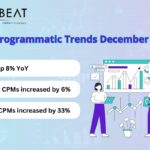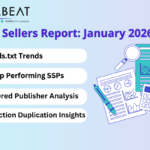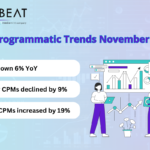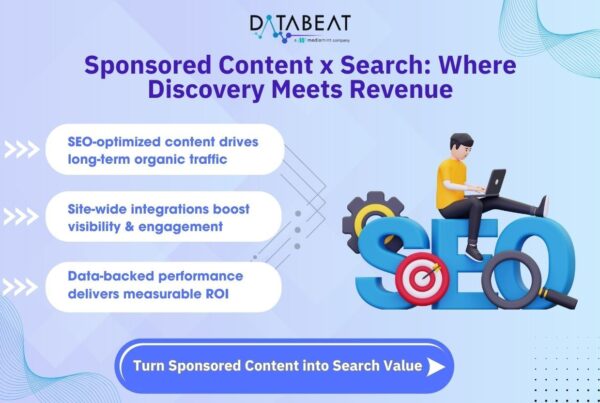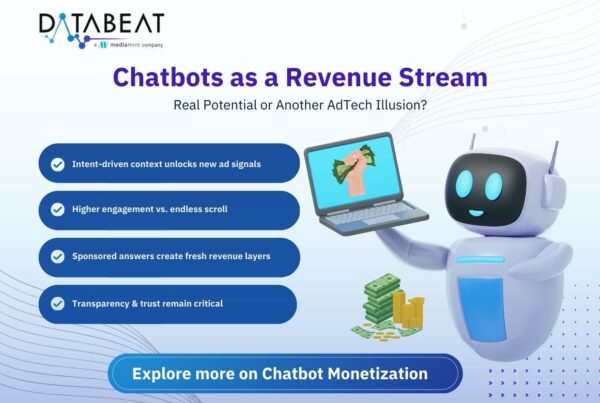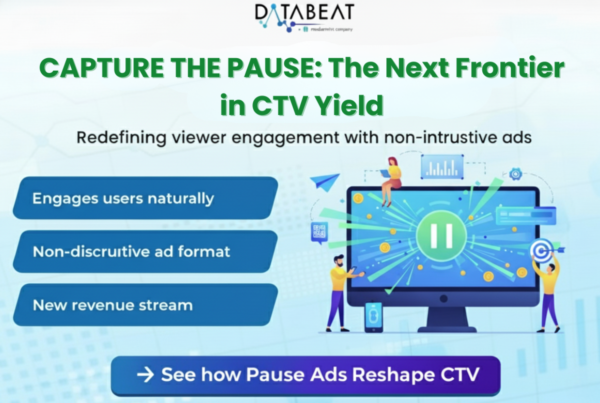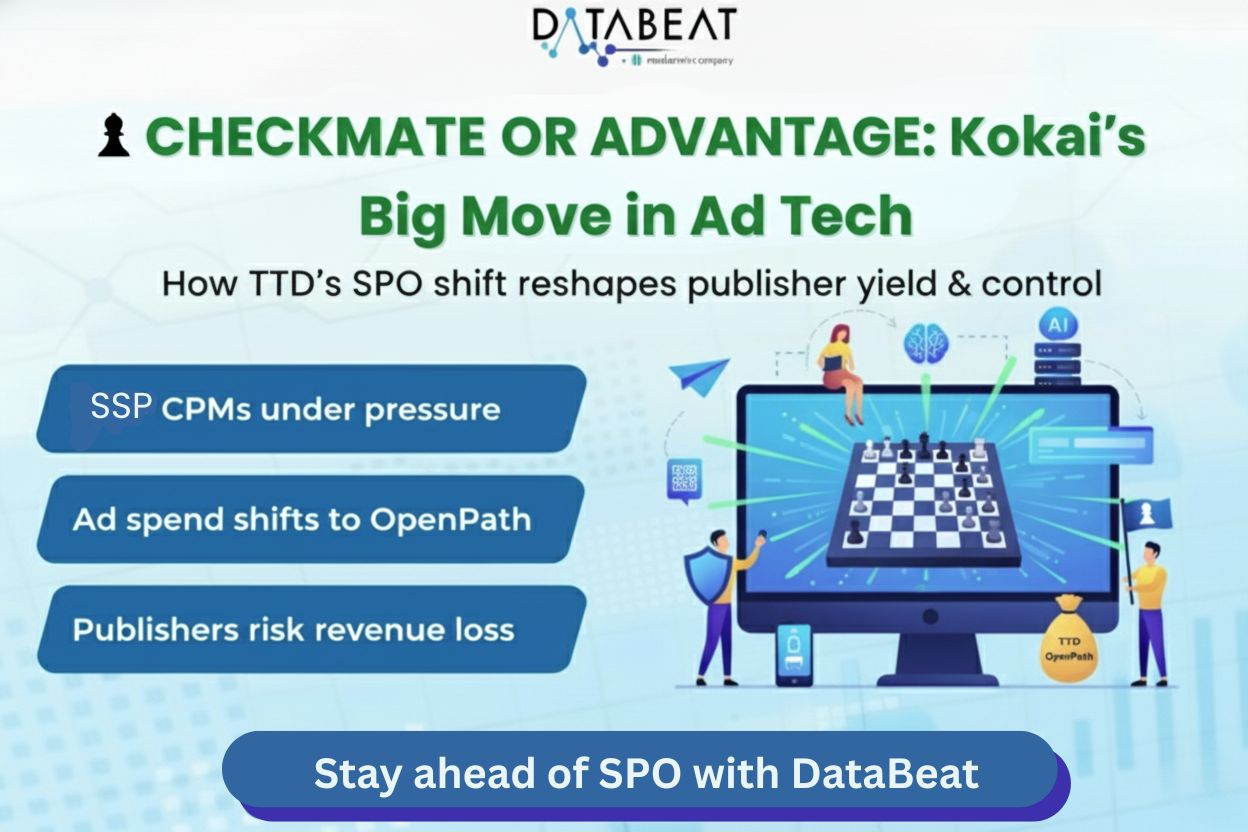
Have you ever played chess? Every move you make is usually in your favor, while nudging your opponent toward a loss. Each move reshapes the board, leaving some at a gain and others at a disadvantage.The ad tech world works a lot like that. The Trade Desk’s recent moves are sending ripples through the ecosystem, and here’s what’s happening.

Context
The Trade Desk’s platform, Kokai, now classifies SSP inventory as “resellers.” In other words, these supply paths are seen as less efficient than OpenPath’s direct-to-publisher connections.
For publishers, this raises some immediate concerns:
- CPMs could drop
- More ad spend may shift toward OpenPath
Why this matters
This move reflects the broader trend of Supply Path Optimization (SPO), where advertisers favor cleaner, more cost-efficient routes to inventory
According to The Trade Desk, Kokai aims to:
- Eliminate superfluous middlemen and simplify procedures.
- Emphasize curated or direct supply routes, such as OpenPath.
- Consolidate programmatic power among fewer supply partners
- Eliminate duplicate bids, hidden fees, and redundant layers
- Give advertisers better transparency and value
The publisher challenge
This change could create resistance for the pubs, if they fail to align with these preferred routes. It gives TTD more control over ad spend, measurement, identity, and campaign execution.
What is Kokai:
- A next-gen, AI-powered platform launched by TTD in 2023
- Built to centralize and simplify programmatic advertising
Publisher POV:
- SSP bids are expected to be pushed down the priority list, which could reduce revenue by around 5 to 15%
- CPMs might drop further for publishers that don’t have direct OpenPath access
- Overall demand could weaken, making publishers more reliant on TTD’s direct supply routes.
What publishers can do
- Verify all current demand sources and identify inefficiencies.
- Examine direct supply integrations or curated marketplaces.
- Identify newer SSPs and partner relationships to avoid being dependent on a single channel.
- Stay informed on new SPO trends and platform updates to be ahead of shifts.
SSP POV
This change can impact their role in the ecosystem significantly. Even transparent, high-quality inventory might be flagged as “reseller,” pressuring SSPs to prove their value more clearly. To retain their relevance, they should concentrate on what differentiates them, like strong identity solutions, better audience data, or commerce-based integrations.
Industry reactions
- The Trade Desk: Consolidating control around a smaller set of direct supply partners
- Index Exchange: CEO Andrew Casale called the move “ignorant,” saying publishers should decide which vendors are resellers
- Critics: Many see this as TTD consolidating power, similar to moves by Google, while TTD frames it as a push for efficiency and transparency
- SSPs: Companies like PubMatic argue they provide value beyond access—identity services, audience extension, commerce tools—and view the reseller label as arbitrary
Bottom line
This isn’t just a terminology change, it signals a real shift in power and revenue flow across ad tech. We’re heading toward:
- Full-stack platforms
- Closer direct collaboration between supply and demand.
- Fewer intermediaries controlling programmatic revenue.
For publishers, the key takeaway: focus on what buyers value most—transparency, independence, and control—rather than just labels.
How the Industry Shift Could Play Out
Publishers who are in favour of direct paths like OpenPath could benefit from steadier demand, as advertisers increasingly favor cleaner, more transparent supply routes. Kokai’s AI-driven optimization may also reduce duplicate bids and inefficiencies, while stronger first-party data and identity frameworks, such as UID2.0, provide publishers with better targeting and measurement options.
On the contrary, ad spend is consolidating among a few major platforms, which could put pressure on CPMs for publishers outside preferred paths. SSPs labeled as “resellers” could lose relevance, reducing competition and innovation. players. Meanwhile, as major platforms take greater control over identity, publishers could become more reliant on just a few ad tech players.
How can DataBeat help?
As Kokai reshapes the programmatic landscape, publishers are left wondering how to protect yield and stay competitive. This is where DataBeat steps in. We help publishers see the real impact of Supply Path Optimization on their revenue and CPMs, not months later, but as it happens. With that clarity, it becomes easier to back the partners that truly deliver value and step away from those that don’t. We also make sure you’re not over-reliant on a single channel by guiding you toward smarter diversification – whether that’s through alternate SSPs, direct deals, or curated marketplaces. And because transparency is the new currency in ad tech, our analytics shine a light on spend, efficiency, and inventory quality in a way that buyers respect. The result is simple: publishers stay in control, protect their independence, and keep demand flowing – even as the rules of the game change.


